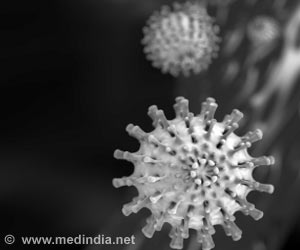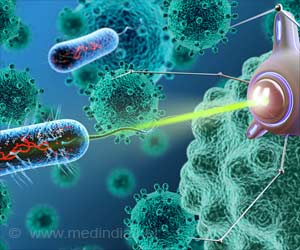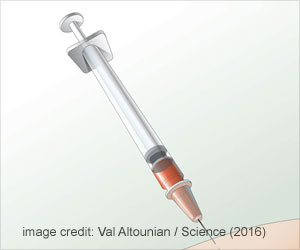Their findings, which provide a target for new therapies that could improve anti-viral responses in some patients and reduce autoimmune problems in others when immune responses run out of control, have just been published in leading journal
Interferons and MDNA – a major piece of the puzzle
“Interferons” are key proteins that tell our immune systems when viruses, germs or cancer cells are in our bodies. Type I interferons are produced when the innate immune system senses the presence of a virus. In such circumstances interferons trigger a complex chain of events in which other cells are kicked into gear to “interfere with” and fight those invaders.
Scientists don’t fully understand how certain links in that chain of events are controlledmaking it difficult to stimulate or suppress an immune response with therapeutic interventionsbut this new research has provided key new insights into the process.
Their work shows that MDNA regulates a transcription factor, IRF7, which in essence drives Type I interferon production.
Professor Andrew Bowie said:
“We have been interested in better understanding how Type I interferons are produced from blood cells because they are required to fight viruses, and because too much of themwhen the production process runs out of control, for examplecontributes to nasty autoimmune diseases such as interferonopathies.
“There is a family of proteins called PYHIN proteins which we have been working on for some time, as they are implicated in regulating innate immunity. To our surprise, one such PYHIN protein, called MNDA, turned out to be a big missing piece in the puzzle in understanding how type I interferon production is sustained, which makes this discovery all the more exciting.
“If we can learn how to manipulate MNDA’s activity it could be really beneficial – on one hand to boost an interferon response during a viral infection, for example upon COVID-19 infection, or on the other hand to supress interferon production and treat an autoimmune disorder.”
The scientists are currently examining how MNDA contributes to innate immune responses to COVID-19.
This work was funded by the Irish Higher Education Authority (HEA), grants from Science Foundation Ireland, the National Institutes of Health, and by a Bio-technology and Biological Sciences Research Council-Science Foundation Ireland joint award.
Source: Eurekalert



